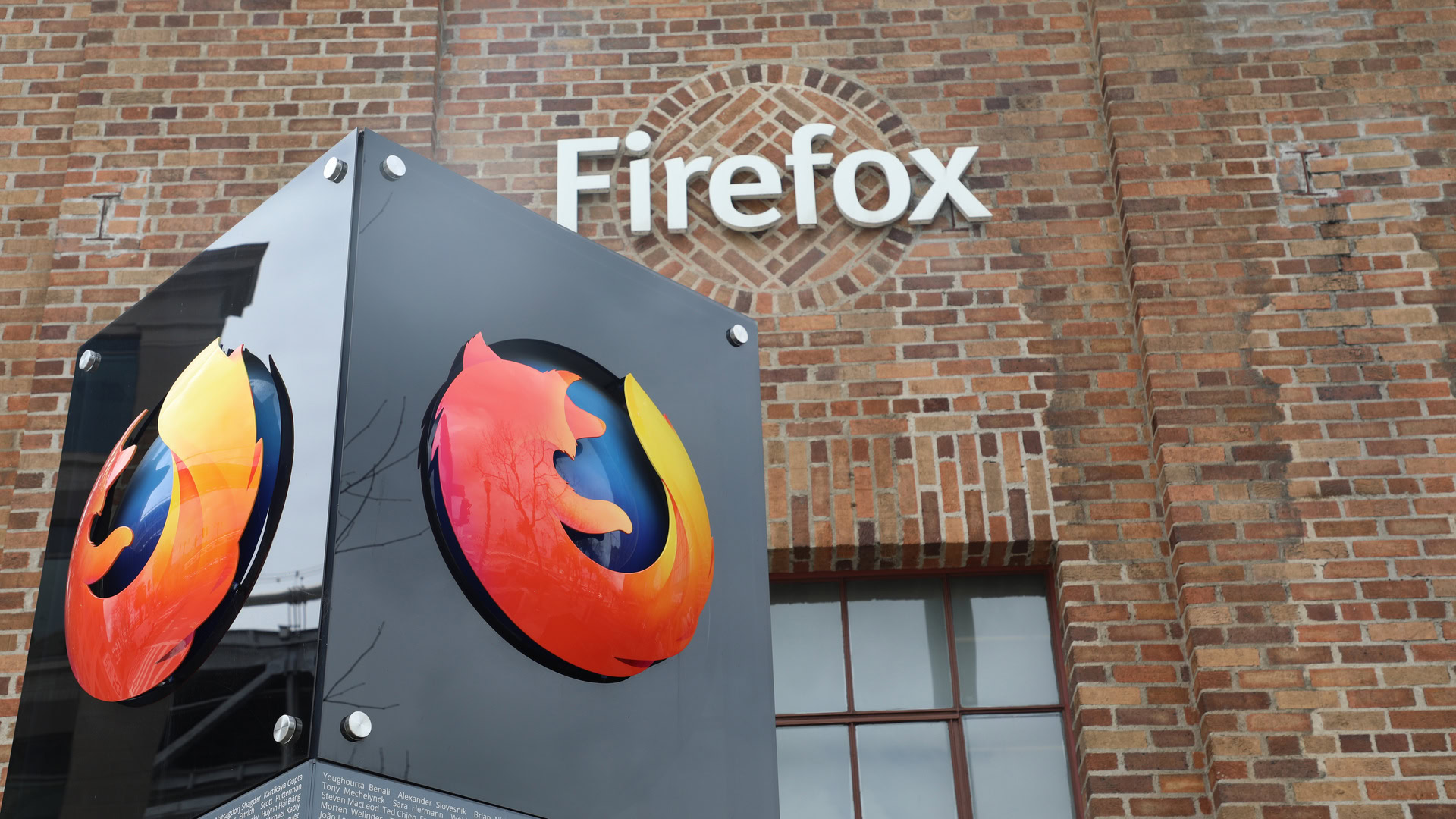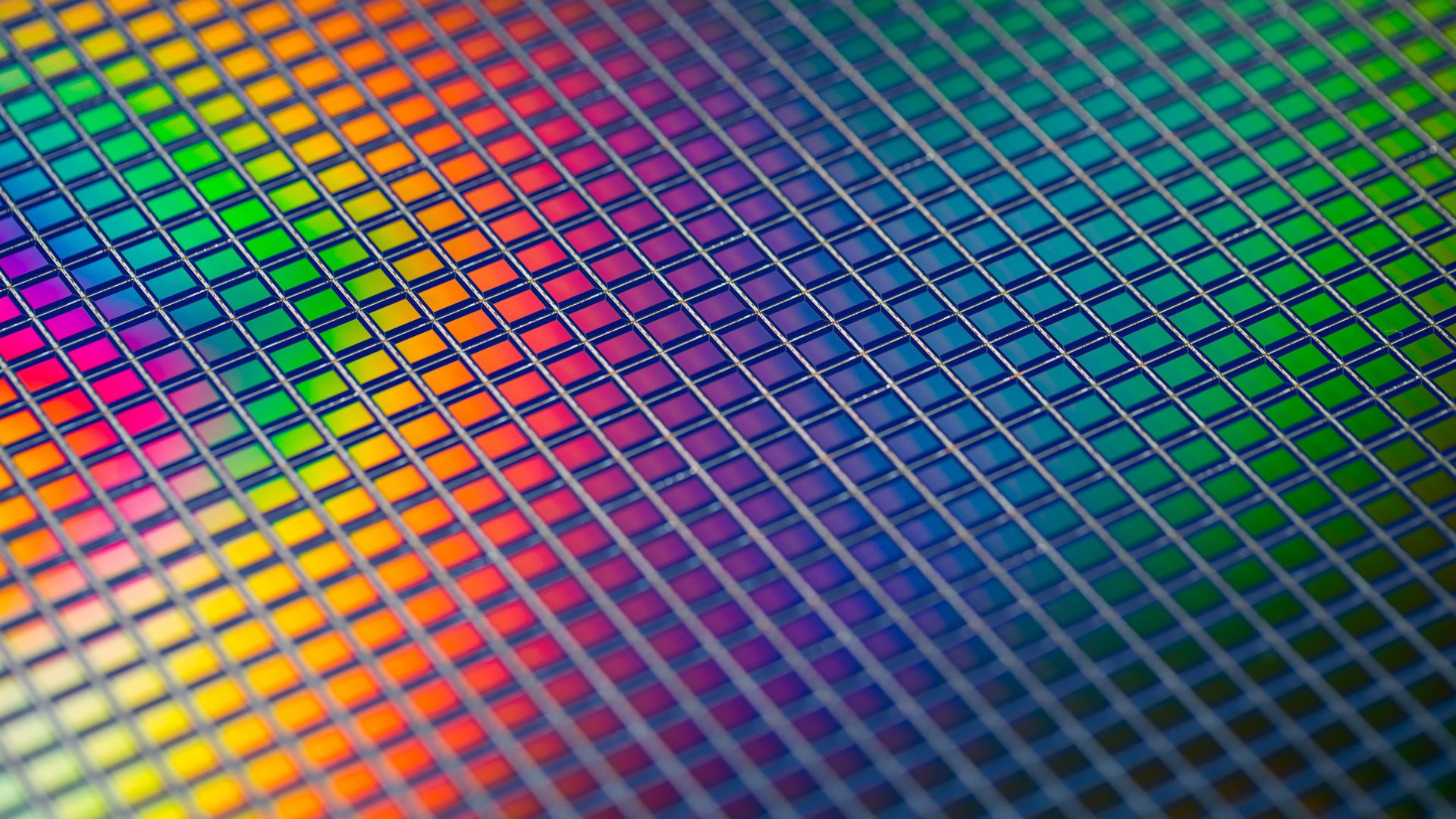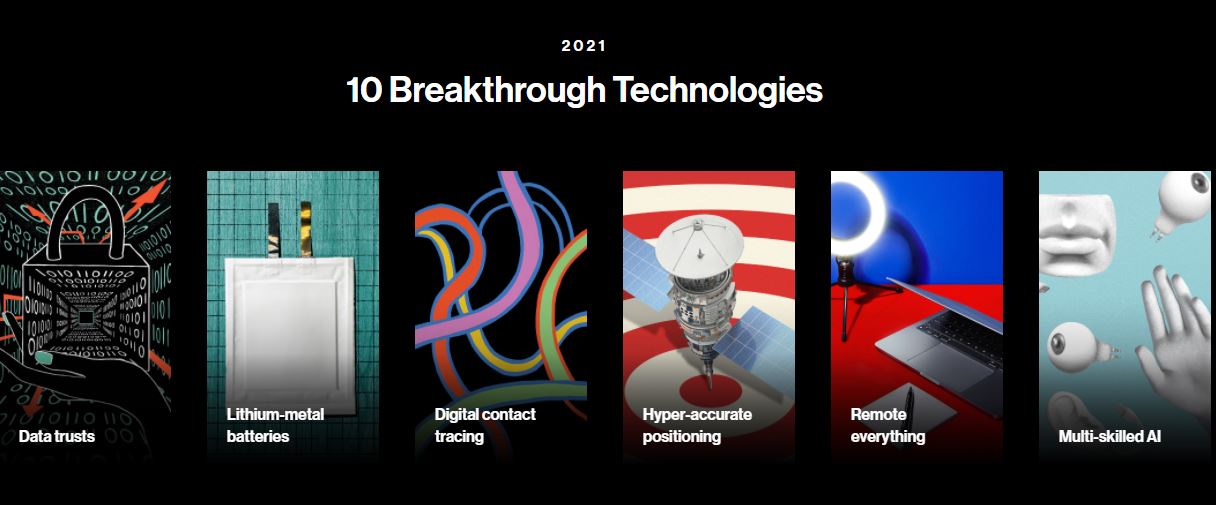Affiliate links on Android Authority may earn us a commission. Learn more.
MIT Technology Review has published its annual list of the year’s most important technologies, sometimes representing the past and present, but mostly a glimpse into our future.
That said, some technologies blow-up but don’t make a real difference, and the list takes those into account too. Here’s the 10:
- Messenger RNA vaccines
- GPT-3
- TikTok recommendation algorithms
- Lithium-metal batteries
- Data trusts
- Green hydrogen
- Digital contact tracing
- Hyper-accurate positioning
- Remote everything
- Multi-skilled AI
Let’s start with what was just about a failure, which was one of the most promising, and launched by two rivals.
- Digital contact tracing was going to be a silver bullet in fighting COVID-19, with Apple and Google offering a unique and clever exposure notification system to skirt around privacy concerns and deliver warnings regarding close contact. Buuuut it hasn’t amounted to much at all, except time and money being wasted.
- Digital Trends had a fairly ruthless take on the failures, which mostly come down to a reliance on Bluetooth, which is not exactly the best technology in current-day use.
- But, knock on wood, there may well be a next time in the future. It’s certain we can do better, and at least vaccines have limited the lack of usefulness from this tech.
More importantly, the big winners:
- We’ve seen mRNA vaccines are a real breakthrough. It’s one of those “overnight miracles” that has been in development for 20 years, and it just so happens that COVID-19 struck at the right time for proficiencies to be good enough for clever vaccines to be developed by multiple biotech companies.
- But that’s not all: “Messenger RNA also holds great promise as the basis for cheap gene fixes to sickle-cell disease and HIV. Also in the works: using mRNA to help the body fight off cancers” — more on the next act for mRNA.
- Lithium-metal batteries are going to be very interesting. QuantumScape’s lithium-metal prototype (Ars Technica), is being seen as super exciting in terms of what may be possible.
- VW bought in with a deal to sell EVs equipped with a lithium-metal battery by 2025, and it may boost range by 80%. That alone, along with expected incremental improvements to EV tech, could push EVs further into complete mainstream use.
- Hyper-accurate positioning is one I didn’t realize is already here.: Location positioning to within centimeters (or less!) can be useful across many industries, but one example mentioned is how detecting subtle changes to the surface of landslide-prone regions can provide early-warnings to people in the path of a slip.
- I also didn’t know much about multi-skilled AI which is the idea that instead of training a model on one single “sense”, such as vision, or audio recognition. That’s not how we learn, and so there’s a thought that AI with multiple senses (such as learning sight and audio together) may be better able to parse what’s happening. That sounds a little hopeful, but it’s clear we are still nowhere on the path to an AI that isn’t easily broken.
- Just ask any of the world’s biggest companies and their AIs: Siri, Alexa, and Google Assistant, remain more frustrating than you’d have thought possible.
📸 Sony may be the first with a one-inch phone camera sensor in its upcoming leaked IMX800 (Android Authority).
🌡 Samsung adds custom CPU throttling for your phone through Galaxy Labs app: instead of overclocking or underclocking with direct MHz control, you can nudge your CPU two degrees warmer or cooler depending on your needs — you’ll need One UI 3.0 or higher (Android Authority).
👋 More than 80% of people surveyed (out of 7,500) said they’d be ditching LastPass for another password manager after restrictive changes (Android Authority).
💵 Gary Explains newsletter: The $4 Raspberry Pi Pico is here (Android Authority).
📺 Google TV will include a new ‘Basic’ mode to make your smart TV, dumb (The Verge).
🔫 PUBG: New State is a new futuristic battle royale set in 2051, only on Android and iOS, not made by Tencent but the PUBG Studio team (Engadget).
📺 We finally know how much Paramount+ will cost. It’s the new streaming service replacing CBS All Access, and it’ll be $5/pm with ads, or $10/pm without. Also, a Halo TV series is coming exclusively to the service (Engadget).
📦 President Biden yesterday signed an executive order intended to improve the supply chain for semiconductor chips, along with critical minerals, pharmaceuticals and large capacity-batteries for electric vehicles. First step is a 100-day review, second step is pressing for $37B funding to “supercharge” manufacturing, whatever that means? (CNET).
📶 FCC says Verizon, AT&T, T-Mobile spent enormous amounts on its C-Band spectrum auction, a critical one for 5G networks. Verizon spent $45B, AT&T $23B, in bids (Reuters).
🧂 Someone hacked their DualShock controller rumble into much much much more rumble (YouTube).
🧀 Great news, one and all: Cheese isn’t bad for you (Wired).
💉 “Why do vaccines provide longer immunity from a virus than natural infection?” (r/askscience).



